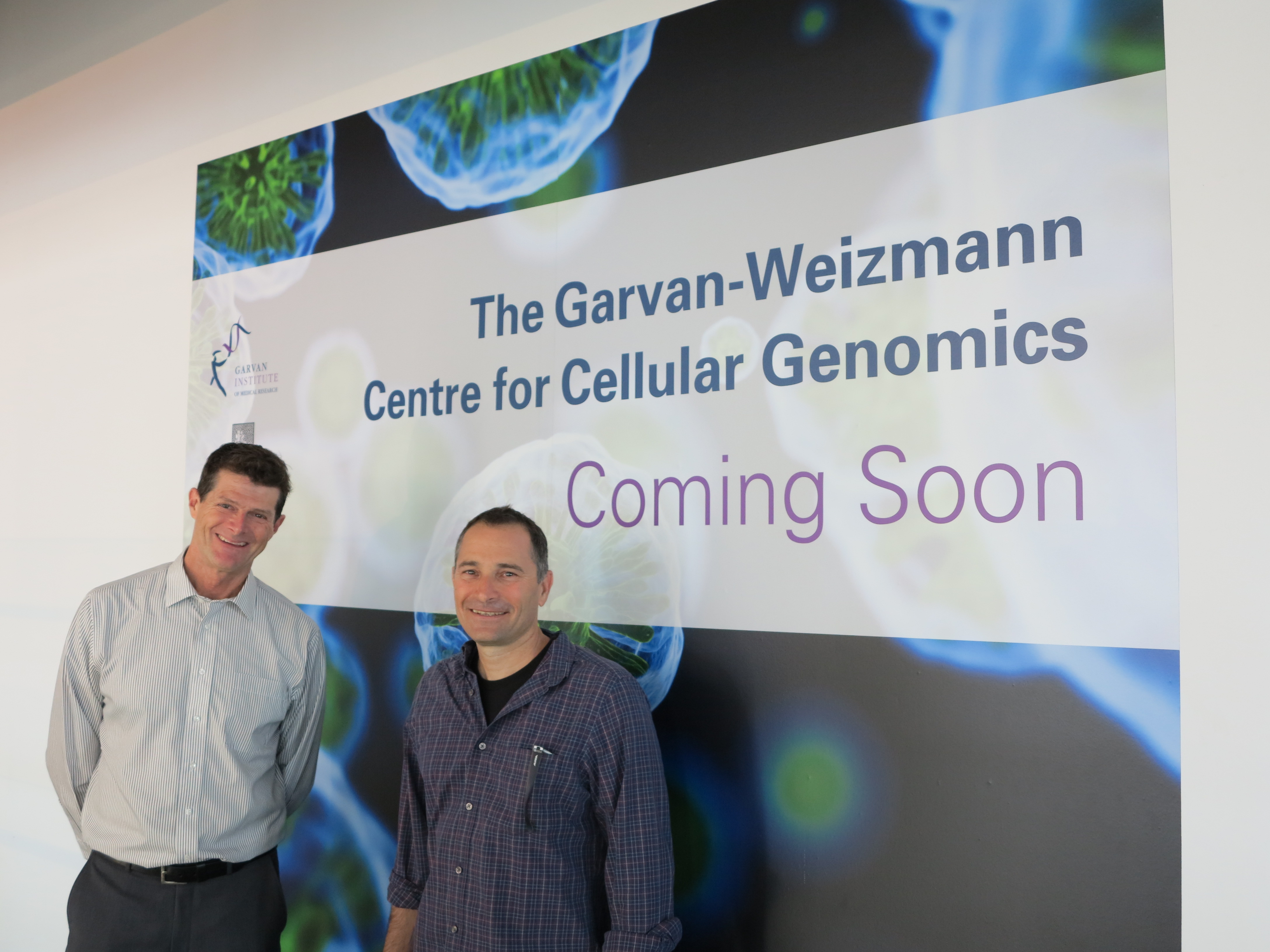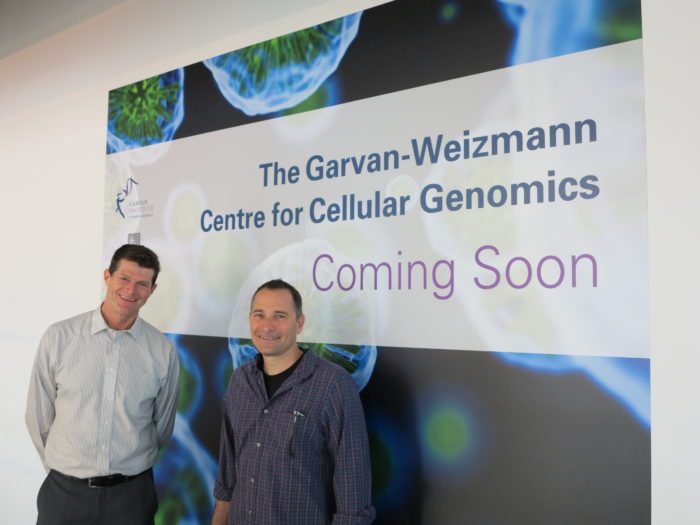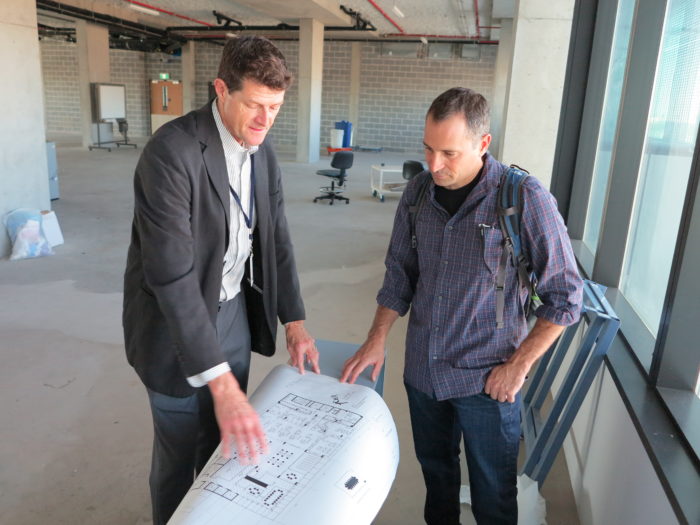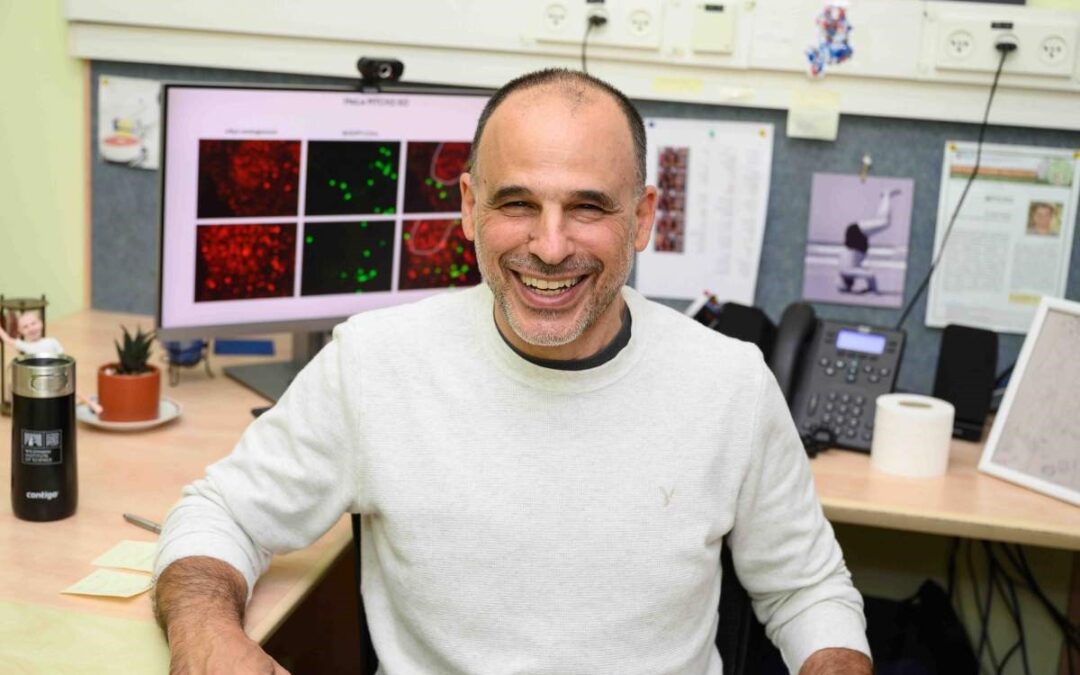It was the first time for Weizmann’s Professor Ido Amit to visit the Garvan Institute of Medical Research in Sydney, where he met senior staff to discuss the recently announced Garvan-Weizmann partnership to establish a centre for cellular genomics, currently under construction.
The strategic partnership will involve a staff and student exchange, the use of immunogentics to understand the immunological responses in complex diseases and the potential for clinical genome sequences supported by Weizmann’s prolific clinical databases.
In a presentation to Garvan staff entitled The power of one: Immunology in the age of single-cell genomics Professor Amit said the medical research potential of cellular genomics is enormous and will impact future development of immunotherapy drugs.
“This entails the measurement of the activity of the genome in thousands of individual cells which can reveal a huge amount of information, such as understanding changes that are likely to precede Alzheimer and cancer,” he said.
“We will also be able to see changes in cells that infiltrate a cancer or changes in brain cells that precede dementia. The potential is endless as cellular genomics can highlight entirely new opportunities for clinical intervention.
“This partnership will bring the expertise of two great institutes together to open up new doorways in our understanding and application of cellular genomics,” said Professor Amit.
Whilst at Garvan, Professor Amit toured Level 11 of The Kinghorn Cancer Centre – the site of the forthcoming Garvan-Weizmann Centre – with Garvan’s Deputy Director Professor Christopher Goodnow.
“It’s a great space and I can now visualise how it’s all going to look, it’s very exciting and I look forward to seeing the final result,” said Professor Amit.
Professor Goodnow said Professor Amit’s visit provided an ideal opportunity to determine how the research strengths of the two institutes can create synergies.
“In particular, we welcome the Weizmann Institute’s strengths in single-cell genomics and other key emerging technologies – and we look forward to sharing Garvan’s expertise in single cell analysis in cancer and diseases of immunity, bone, brain and metabolism, and in cancer genomics, epigenetics and whole genome sequencing.”
Garvan’s Executive Director, Professor John Mattick AO concluded: “The partnership between Garvan and Weizmann is a major development that brings two outstanding research institutes together to address major problems in understanding human biology and disease, and is another example of the global reach of both.”













